Essential: Sales Coaching for Revenue Growth
In the fast-paced world of business, how do you ensure your sales team is achieving their targets and driving revenue growth? Or how to unlock the full potential of your sales team? The answer lies in effective sales coaching. Nowadays, achieving consistent revenue growth and surviving the competition requires more than just salespeople—it demands a skilled person with proper sales training, which will help in achieving the desired result. Let’s understand more about sales coaching, the key benefits of effective programs, and how implementing actionable strategies contributes to a team’s success. Let’s start.
The Concept of Sales Coaching
Sales coaching isn’t just a tool—it’s an essential process that empowers individuals and transforms entire teams. It’s all about refining techniques, improving communication skills, and creating an environment where everyone is constantly growing and learning. Whether you’re a reputed company or a growing business in Australia, investing in sales coaching can be the game-changer for taking your revenue to new heights.
Benefits of Sales Coaching
- Skill Improvement: Coaching helps identify the scope of improvement and provides focused training to boost performance. This could mean fine-tuning negotiation skills or becoming masters of product knowledge.
- Motivation: Coaching encourages a sense of purpose and accountability among sales professionals. Regular feedback and encouragement from coaches keep the team motivated to achieve and exceed targets.
- Flexibility: In today’s dynamic market, adaptability is crucial. Coaching plays a vital role in helping sales teams stay flexible by equipping them with the right tools and insights to respond promptly to evolving customer needs and market trends.
- Culture Building: A positive coaching environment contributes to a strong team culture. When individuals feel supported and valued, they are more likely to collaborate, share ideas, and contribute to a positive work atmosphere.
The Essentials of Sales Coaching
For your business to grow, sales coaching needs to be woven into the fabric of your company’s culture and management approach. Let’s learn the key elements of the process:
1. Personalised Development
Businesses should understand that each salesperson has unique strengths and areas for improvement. By customising coaching sessions to focus on their individual needs, they can help them grow personally and contribute more effectively to the team. Businesses should take the time to understand each salesperson’s strengths and weaknesses. This may include conducting assessments or having group discussions to recognise strengths, areas for growth, and career aspirations.
2. Regular Feedback
Timely and constructive feedback is the basis of sales training. Regular assessments and discussions can help a salesperson to know the loopholes and solutions to their problem. Feedback should be a two-way conversation, where coaches offer helpful observations and salespeople openly share their thoughts on challenges and successes. Regular check-ins and feedback create chances to celebrate achievement together and work on areas of growth.
3. Skill Upgrading
Coaching sessions include a focus on improving essential sales skills such as active listening, objection handling, and relationship building. Strengthening these abilities will help you to navigate complex sales scenarios with confidence. For example, conducting mock sales calls or engaging in negotiation processes allows salespeople to apply newly acquired skills in a safe environment. This approach will accelerate skill development and build proficiency.
4. Goal Alignment
Coaching objectives should match with broader sales goals to create a unified vision. When individual efforts are synchronised with organisational targets, the entire team becomes driven towards achieving tangible results. This means setting goals that are easy to understand and measure, which directly contribute to the sales targets. By establishing a shared vision, sales teams gain a sense of purpose and are motivated to collaborate towards common milestones.
5. Utilising Insights
Using analytics to understand sales performance better is one of the essentials of sales coaching. By analysing data, you can spot trends, improve strategies, and track progress objectively. These insights enable sales teams to make informed decisions and help them to achieve sales goals. Using the data ensures that coaching efforts are targeted and impactful, leading to measurable improvements in performance.
6. Mentorship
A good mentor plays a very crucial role in the success of sales coaching. When managers actively participate in coaching sessions, it shows their dedication and sets a positive example within the team. This collaborative approach not only strengthens the team’s bonds but also helps individuals in personal growth, and encourages them to approach their leader in case of any difficulty.
Conclusion
Sales coaching is more than a support system; it’s a crucial strategy for boosting revenue. When you invest in developing your sales team, you’re setting the stage for lasting success and positioning yourself as a leader in the market.
So, what are you waiting for? Implement the principles of sales coaching in your business today and experience the transformative impact. Contact Dynamo Selling today and start your journey towards unparalleled sales success!


